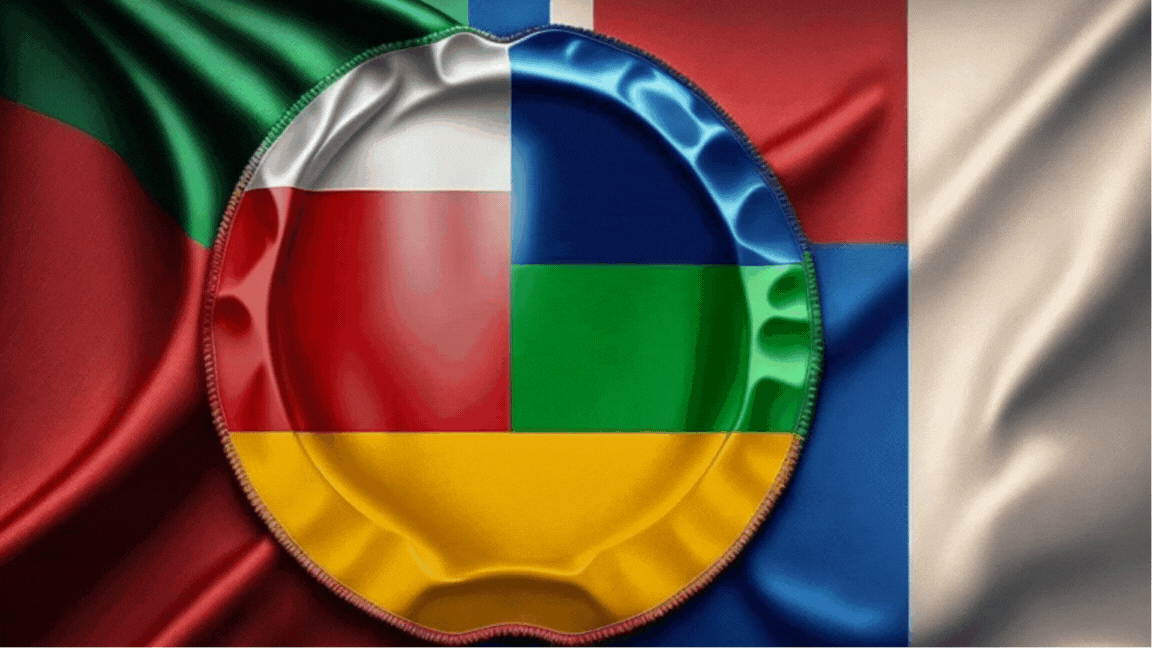The Latin American Report # 362

Repercussions of a red victory
The Republican Party's landslide performance yesterday would seem to offer little incentive for the region, as we have been advancing in recent reports. In a world focused on the political-humanitarian crisis in the Middle East, and to a lesser extent the war in Ukraine, it is difficult for Donald Trump's administration to pay special attention—as the situation indeed requires—to what is happening in America's infamous backyard. During his first stint on the West Wing, the eccentric leader, emphasized the Mexican border issue and, outside of it, ideological battles—fundamentally against Cuba, Venezuela, and Nicaragua—, coaxed into them by veteran foreign policy hawks like John Bolton (Trump won somehow easily in Miami-Dade yesterday, where many Cubans live). Now, in his imposing return to Pennsylvania Avenue, Trump will once again put the spotlight on the immigration issue, from which he undoubtedly managed to extract a representative number of votes.
In this context, thousands of migrants left yesterday in a new caravan from Tapachula, Mexico, to demand that immigration measures not be tightened. “Most of the people leaving Tapachula are afraid that Donald Trump will win, that he wants to end the entry of migrants to the United States; if you look at it, we are a working class willing [to contribute] and [receive a] job opportunity,” a Venezuelan migrant told EFE. In the same vein, a Honduran migrant told Reuters that “[they] want U.S. authorities to see [them], to see that [they] are people who want to work, not to harm anyone”. The same migrant said that one of the reasons they move in caravans—which in the recent past have ended up dispersing without reaching the country's central region—is the fear of traveling alone in a territory as hostile as Mexico. “Here, the cartels either kidnap you or kill you,” he said. The intention of the group, carrying a sign reading the message “No more migrant blood”—pointing particularly to recent events in which migrants have been shot dead in confusing and messy skirmishes at the hands of the National Guard—, is to reach the capital before Trump, described as “racist” by another Honduran migrant, is inaugurated for his second term. “I feel suffocated here [in Tapachula]. That's why we decided to leave,” said a 28-year-old Venezuelan female migrant.
Salen dos caravanas migrantes de Tapachula y Tuxtla Gutiérrez, Chiapas. El fin de semana esperan encontrarse en el municipio de Arriaga; van acompañados por la Guardia Nacional y la policía estatal. #ExpresoDeLaMañana con @_fernandanews | #nmásforo | #SiempreEnVivo |… pic.twitter.com/cBvlmW6cd0
— N+ FORO (@nmasforo) November 6, 2024
The president-elect has at least suggested that he will end certain policies of the outgoing administration that have somewhat alleviated the agonizing plight of migrants, enabling legal channels through a humanitarian parole program—although limited to four countries—and organizing border arrivals using the CBP-One mobile app, available in certain areas of Mexico. Voters in Arizona approved controversial legislation also yesterday granting special powers to state authorities to deal with irregular migration, in apparent contradiction to federal legislation on this issue.
Ideology
An interesting point when assessing what will be Trump's second stage in the Oval Office is how he will move the issue of the crusade 2.0 against the so-called “axis of evil”, which included Venezuela, Cuba, and Nicaragua, fundamentally in the first two cases, because with Managua the issue is more rhetorical than practical. Maduro threatens to lord it over the Miraflores Palace despite the reasonable doubts cast on the “official” outcome of the presidential elections last August. But the Biden administration has been cautious in applying new sanctions for two reasons: it is in the interest of the U.S. and the West in general to maintain some stability in the oil market, while continuing to drill into Caracas' finances has a social effect which, beyond the humanitarian consequences on the ground, will then have repercussions in an upsurge of the crisis at the border. The same could be argued in the case of Cuba, a country in a state of hypovolemic shock whose inhabitants have found an escape valve in the current migratory measures, of which they are the main beneficiaries due to the legal peculiarities that have historically assisted them.
Venezuela congratulated Trump on his victory, betting on respect in bilateral relations 👇
#ENFOTOS | El pueblo de #Venezuela 🇻🇪, felicita a Donald Trump por su victoria en las pasadas elecciones presidenciales de los #EstadosUnidos 🇺🇸 pic.twitter.com/5EU6ZQkW4y
— teleSUR TV (@teleSURtv) November 6, 2024
The strategy shamefully envisioned by an official of the Eisenhower administration of hoping that Cubans, once exposed to conditions of extreme scarcity, would overthrow the political regime installed by Fidel Castro's Revolution, has failed miserably, especially in its second part, which is the one that proves the unfortunate hypothesis. The first, right now, is a fact in any area or socioeconomic activity that we evaluate on the Island, and it is the main feeding line of our particular migratory crisis. So what will Trump do here? Apply the recipe proposed by a Marco Rubio included among the finalists for the strategic position of Secretary of State? It could be, especially because Trump intends to close the migratory problem “outside” the U.S. border, perhaps appealing to regulations such as his controversial “health order” or the one that forced migrants to wait in Mexico for the resolution of their asylum cases.
Brazil, Argentina, and Mexico threatened by potential tariffs
And this is all for our report today. I have referenced the sources dynamically in the text, and remember you can learn how and where to follow the LATAM trail news by reading my work here. Have a nice day.

